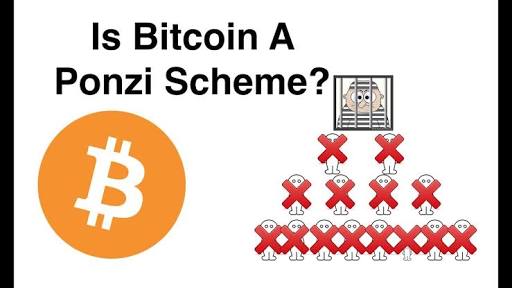CRYPTOCURRENCY- A PONZI SCHEME
The head of the World Bank compared cryptocurrencies to “Ponzi schemes,” the latest financial voice to raise questions about the legitimacy of digital currencies such as Bitcoin.

“In terms of using Bitcoin or some of the cryptocurrencies, we are also looking at it, but I’m told the vast majority of cryptocurrencies are basically Ponzi schemes,” World Bank Group President Jim Yong Kim said Wednesday at an event in Washington. “It’s still not really clear how it’s going to work.”
The development lender is “looking really carefully” at blockchain technology, a platform that uses so-called distributed ledgers to allow digital assets to be traded securely. There’s hope the technology could be used in developing countries to “follow the money more effectively” and reduce corruption, Kim said.
.jpeg)
The value of cryptocurrencies soared in 2017 before slumping, with Bitcoin losing nearly two-thirds of its value since mid-December.
While cryptocurrency technology has the potential to reshape global finance, concerns have been raised about its volatility and the potential for money laundering or other crimes.
In a speech this week, Bank of International Settlements chief Agustin Carstens said there’s a “strong case” for authorities to rein in digital currencies because their links to the established financial system could cause disruptions. Federal Reserve Chair Jerome Powell has said that “governance and risk management will be critical” for cryptocurrencies.
India's finance ministry on Friday cautioned investors about the risks of trading in cryptocurrencies such as bitcoin, saying digital currency investments are like "Ponzi schemes."
.jpeg)
Cryptocurrencies are not legal tender and have no regulatory permission or protection in the country, the finance ministry said in a statement, but stopped short of announcing an outright ban or imposing any curbs.
Investors and other participants dealing with such digital currencies are doing so "entirely at their risk and should best avoid participating therein," the statement said.
"There is a real and heightened risk of investment bubble of the type seen in Ponzi schemes", with investors risking a sudden and prolonged crash, the statement said
A Ponzi scheme is a swindle offering unusually high returns, with early investors paid off with money from later investors.
The ministry also cautioned that encrypted transactions in cryptocurrency were likely being used for illegal activities such as "terror-funding, smuggling, drug trafficking and other money laundering acts."
India currently has no regulation for cryptocurrencies, and like other global policymakers, it is seeking to understand how to supervise a market that many feel is a speculative bubble.
"Mere issuance of an advisory is not sufficient when thousands of people have lost money in cryptocurrency," said Pavan Duggal, a cyber expert and a lawyer with India's top court.
"Government has the sovereign duty to come up with a legal framework to regulate the cryptocurrencies and protect genuine investors," he said.
.jpeg)
Last week, India's capital market regulator said it was in talks with the government and central bank on how to regulate cryptocurrencies.
Sources: Bloomberg, Reuters, Google